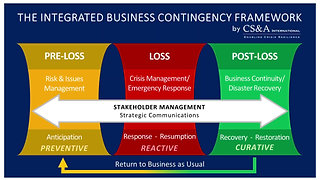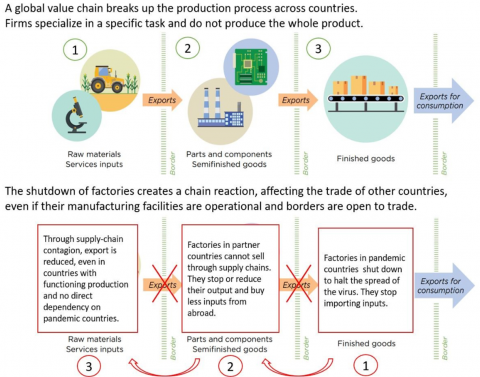
Construction managers who wish to improve their careers need accreditation. Accreditation is a way to ensure that a college's or university's programs meet the requirements of the profession in which they prepare their graduates. Learn more about the various accreditation options, including ABET ACCE, Louisiana State University, and Louisiana State University.
ABET accreditation gives assurance that a college/university program meets the professional standards for which it prepares graduates.
The ABET accreditation process ensures that a college or university program meets quality standards and prepares its graduates to be successful in their chosen profession. ABET's voluntary peer reviewing process is highly regarded and adds value for technical programs.
A voluntary accreditation process for ABET is carried out by a team that includes volunteers from government, industry, academia, and the private sector. The team's work is focused on the quality of the program's curriculum, faculty, and institutional support.

ACCE accreditation
ACCE accreditation for construction management programs is a valuable asset to prospective students, employers, and employees. Accredited programs are a way for students to acquire the knowledge and skills needed to succeed as a building manager. In addition, accreditation makes it easier for employers to identify quality employees. Accredited programs can also foster leadership development, foster networking and keep abreast of construction trends.
American Council for Construction Education accredits both the Associate of Applied Science (ACCE) and the Bachelor of Science degrees in construction management. The Bachelor's program includes a capstone course, internships, and a minimum of three years. Both programs require minimum GPAs of 3.0, and minimum GRE scores of 550. The applicants can also apply for up to nine credits of credit from another institution, provided they meet certain academic requirements. The ACCE accreditation process is rigorous, and accredited construction management education programs are required to maintain high quality standards, aligning their educational programs with industry requirements.
ABET accreditation
ABET accreditation for construction management programs is a great way to ensure quality education and to ensure that the program content is approved by an external, independent governing body. Accreditation Boards for Engineering Technology (ABET), usually grant accreditation to construction management programs. Programs must meet certain standards in order to be accredited by ABET. Accredited programs make sure that students are ready for careers in technical fields, and they stay current with new technologies.
Some schools have two or more curricula that are not affiliated with the same ABET accreditation. The curriculum might contain core courses that are common to both programs in such cases. This could create competition for students, and increase the likelihood of overextending your resources.

Louisiana State University accreditation
A master's degree in construction management from Louisiana State University will give you the skills and training necessary to lead a construction project. This program teaches you how to plan, design, and deliver construction projects. It will also teach you how to integrate sustainable practices into your construction process. This program, which is accredited by American Council for Construction Education (ACCE), combines core construction courses with leadership coursework. This will allow you to be a skilled construction manager.
Louisiana State University offers an e-Bachelor of Science degree in Construction Management. This program consists of six CM courses, which will provide you with a fundamental knowledge base for the field. After you meet the program requirements you'll be able to gain an exclusive perspective of the field.
FAQ
How do you effectively manage employees?
The key to effective management of employees is ensuring their happiness and productivity.
It is important to set clear expectations about their behavior and keep track of their performance.
Managers need clear goals to be able to accomplish this.
They need to communicate clearly and openly with staff members. They also need to make sure that they discipline and reward the best performers.
They also need to keep records of their team's activities. These include:
-
What was the result?
-
What was the work involved?
-
Who did it, anyway?
-
How did it get done?
-
Why?
This information can be used for monitoring performance and evaluating results.
What are the most important management skills?
No matter if they are running a local business or an international one, management skills are vital. They are the ability to manage people and finances, space, money, and other factors.
Management Skills are also needed when you're setting goals and objectives, planning strategies, leading teams, motivating employees, resolving problems, creating policies and procedures, and managing change.
There are so many managerial tasks!
What kind of people use Six Sigma
Six-sigma will be well-known to anyone who has worked in operations research or statistics. Anyone involved in business can benefit.
Because it requires a high level of commitment, only those with strong leadership skills will make an effort necessary to implement it successfully.
What are the main four functions of management
Management is responsible in planning, organizing and directing people and resources. This includes setting goals, developing policies and procedures, and creating procedures.
Management helps an organization achieve its objectives by providing direction, coordination, control, leadership, motivation, supervision, training, and evaluation.
Management's four main functions are:
Planning - Planning refers to deciding what is needed.
Organizing – Organizing means deciding how to organize things.
Directing - Directing means getting people to follow instructions.
Controlling: Controlling refers to making sure that people do what they are supposed to.
How can a manager improve his/her managerial skills?
By practicing good management skills at all times.
Managers need to monitor their subordinates' performance.
You should immediately take action if you see that your subordinate is not performing as well as you would like.
It is essential to know what areas need to be improved and how to do it.
What are the five management processes?
The five stages of any business are planning, execution, monitoring, review, and evaluation.
Setting goals for the future is part of planning. This includes setting goals for the future and defining what you want.
Execution happens when you actually do the plan. You need to make sure they're followed by everyone involved.
Monitoring allows you to monitor your progress towards achieving your goals. Regular reviews of performance against targets, budgets, and other goals should be part.
Every year, there are reviews. They provide an opportunity to assess whether everything went well during the year. If not there are changes that can be made to improve the performance next year.
Following the annual review, evaluation is done. It helps identify what worked well and what didn't. It also provides feedback on the performance of people.
How does a manager motivate their employees?
Motivation can be defined as the desire to achieve success.
Enjoyable activities can motivate you.
You can also feel motivated by making a positive contribution to the success in the organization.
If you are a doctor and want to be one, it will likely be more rewarding to see patients than to read medical books every day.
A different type of motivation comes directly from the inside.
You might feel a strong sense for responsibility and want to help others.
You may even find it enjoyable to work hard.
Ask yourself why you aren't feeling motivated.
Then, consider ways you could improve your motivation.
Statistics
- As of 2020, personal bankers or tellers make an average of $32,620 per year, according to the BLS. (wgu.edu)
- The BLS says that financial services jobs like banking are expected to grow 4% by 2030, about as fast as the national average. (wgu.edu)
- Your choice in Step 5 may very likely be the same or similar to the alternative you placed at the top of your list at the end of Step 4. (umassd.edu)
- Hire the top business lawyers and save up to 60% on legal fees (upcounsel.com)
- The average salary for financial advisors in 2021 is around $60,000 per year, with the top 10% of the profession making more than $111,000 per year. (wgu.edu)
External Links
How To
How do you implement Quality Management Plans (QMPs)?
QMP (Quality Management Plan) is a system to improve products and services by implementing continuous improvement. It is about how to continually measure, analyze, control, improve, and maintain customer satisfaction.
QMP is a standard way to improve business performance. The QMP aims to improve the process of production, service delivery, and customer relationship. A QMP should include all three aspects - Processes, Products, and Services. When the QMP includes only one aspect, it is called a "Process" QMP. When the QMP focuses on a Product/Service, it is known as a "Product" QMP. The QMP that focuses on customer relationships is known as the "Customer" QMP.
Scope, Strategy and the Implementation of a QMP are the two major elements. They can be described as follows:
Scope: This defines what the QMP will cover and its duration. If your organization wishes to implement a QMP lasting six months, the scope will determine the activities during the first six month.
Strategy: This describes the steps taken to achieve the goals set out in the scope.
A typical QMP is composed of five phases: Planning Design, Development, Implementation and Maintenance. Each phase is explained below:
Planning: This stage determines the QMP goals and prioritizes them. Every stakeholder involved in the project is consulted to determine their expectations and needs. Next, you will need to identify the objectives and priorities. The strategy for achieving them is developed.
Design: This stage involves the creation of the vision, mission, strategies and tactics necessary to implement the QMP successfully. These strategies are put into action by developing detailed plans and procedures.
Development: Here, the team develops the resources and capabilities that will support the successful implementation.
Implementation: This involves the actual implementation of the QMP using the planned strategies.
Maintenance: The maintenance of the QMP is an ongoing task.
In addition, several additional items must be included in the QMP:
Stakeholder Engagement: It is crucial for the QMP to be a success. They should be involved in planning, design, development and implementation of the QMP.
Project Initiation: The initiation of any project requires a clear understanding of the problem statement and the solution. In other words, they must understand the motivation for initiating the project and the expectations of the outcome.
Time Frame: The time frame of the QMP is very critical. A simple version is fine if you only plan to use the QMP for a brief period. However, if you have a long-term commitment, you may require more elaborate versions.
Cost Estimation: Another important component of the QMP is cost estimation. It is impossible to plan without knowing what you will spend. Therefore, cost estimation is essential before starting the QMP.
QMPs are not just a written document. They should be a living document. It changes as the company grows. It should be reviewed regularly to ensure that it meets current needs.